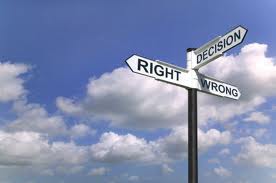 | |
| The ancient Greek word, "demos kratia" means "the people rule" |
In ancient Athens citizens concerned with the Polis were known as ‘Polites’.
The “Polites” proposed policies.
Today ‘politicians’ do not "propose" a policy but decide policy for all citizens while the vast majority of citizens cannot.
This contradicts"Demos – Kratia".
To vote is to choose.
To choose is to prefer.
In elections
we decide
who will decide
for us -
what our society should do.
We choose others
to express our preference
and we expect them
to choose, decide, prefer, vote according to our priorities.
They are supposed to serve as a mere extension of us.
In reality they impose their own priorities on us.
Why choose others to choose on our behalf?
Why can’t we ourselves choose what we prefer our society to do ?
Representatives were elected because in order to find out what millions of citizens prefer was a very slow and difficult process, and policies often must be decided quickly.
The easiest way to decide policies for a whole society was to authorize one person to decide for all.
So for many years, in most societies, one person (Chieftain, King, Emperor) decided what an entire society should do. Often, that person’s priority was to assume authority over all property in their 'region' and often beyond - which then became the family's property. Eventually citizen's rejected such authority and elected representatives to decide policies for them.
If one politician represents 100,000 citizens,
500 politicians represent 50 million citizens.
500 politicians can easily sit in a medium-sized hall to debate
(‘parler’ in Parliament or ‘congregate’ in Congress)
and vote by raising hands.
Everyday Representatives make decisions
for those who elected them.
This system required engaging millions of people, explain issues, options and impacts, setting up polling centres, recording individual preferences, counting millions of votes, and was - until recently - a very long and complicated procedure.
Today the entire process to 'inform' the public is easily managed through media and technology.
Most people assume that politicians vote to reflect the preferences of those who elected them. Usually they don’t. Nor do they possess a special skill or expertise to make decisions. Every decision is determined by a priority, not by a skill. Decision-making is a role, not a skill; everyone makes decisions daily.
The Athenian philosopher Plato - who opposed Democracy - argued that decision-making is a skill like that of a ship’s captain who steers a ship in a particular direction by using knowledge of ships and navigation. But society is not a ship. All passengers on a ship want to reach the same destination, but not all citizens in society want the same policy since they have different priorities.
Politicians need some skills
to get Power,
like the ability to conspire in order to defeat rivals;
a knack for flattering their financial supporters;
and
of course charisma will get the crowds to turn out
and a mastery of political verbage will win over uninformed voters but they need no special skill for deciding policy.
Politicians decide policy according to their personal priorities at the moment, like everyone else, or those of their 'party'/supporters. Your voice – the voice of the independent tax payer – is lost in the spector of 'political sport'.
The citizens of ancient Athens,
those who invented Democracy,
declared: “Every cook can govern.”
Anyone can decide for all citizens
without any special skill or training
because all decisions are determined by priorities not by a special skill.
Everyone has priorities.
There is no special skill required, in passing the message from those one represents along to the government.
'Politician' is not a profession – it is a role.
Anyone can be a politician, or even President or Prime Minister.
Whether or not they would be competent and for whom they would be effective depends on the priorities of those who elected him/her and then agreed or not with the policy decisions made on their behalf.
Forecasting the outcome of a policy does require knowledge and skill, which is provided by experts who study the various options and their possible outcomes.
These experts report their findings, perhaps the process of their analysis, their conclusions, suggest options, potential risk, predict outcome, but they do not decide which option to choose.
The Representative decides.
Experts rarely decide policy, but when they do, it is their priorities, not their expertise, that determines their decision.
Political representatives act like the jury in a court of law. Jury members are not legal experts.
They listen to lawyers, to witnesses, and the judge, and then decide whether the defendant is guilty or not.
When witnesses contradict each other, jurors must decide whom to believe.
They do so according to their preferences, choices, beliefs
not according to their legal knowledge.
Politicians decide what society will do.
The State carries out these decisions.
This raises two questions: What is ‘Society’? and What is ‘The State’?










